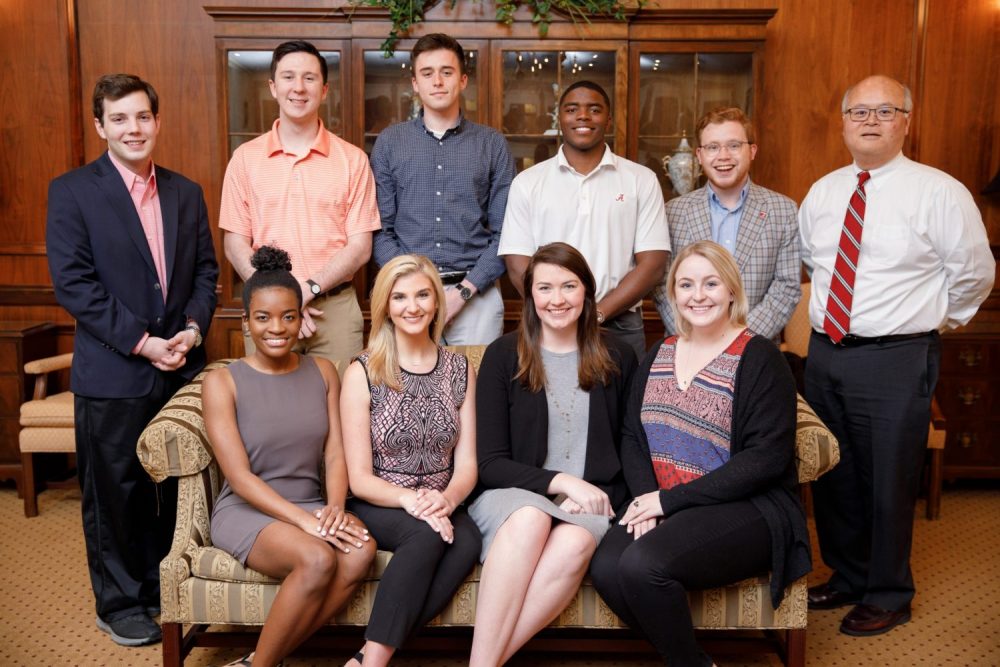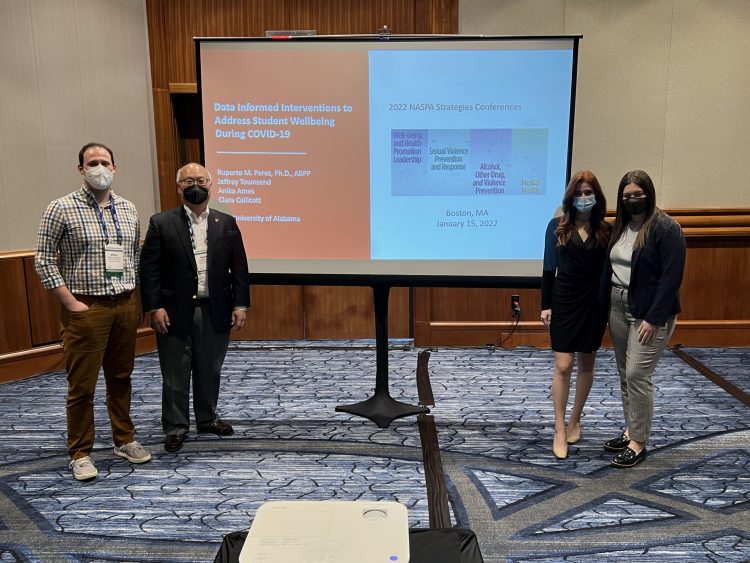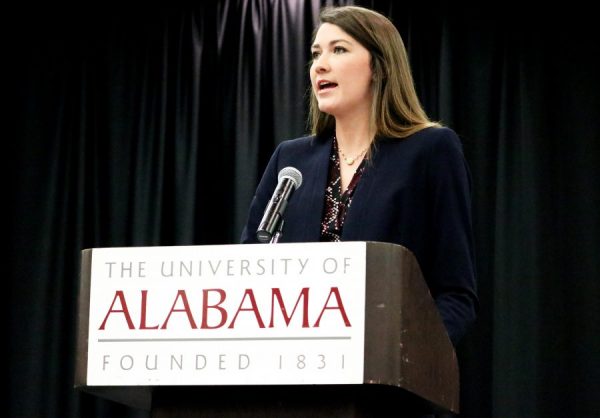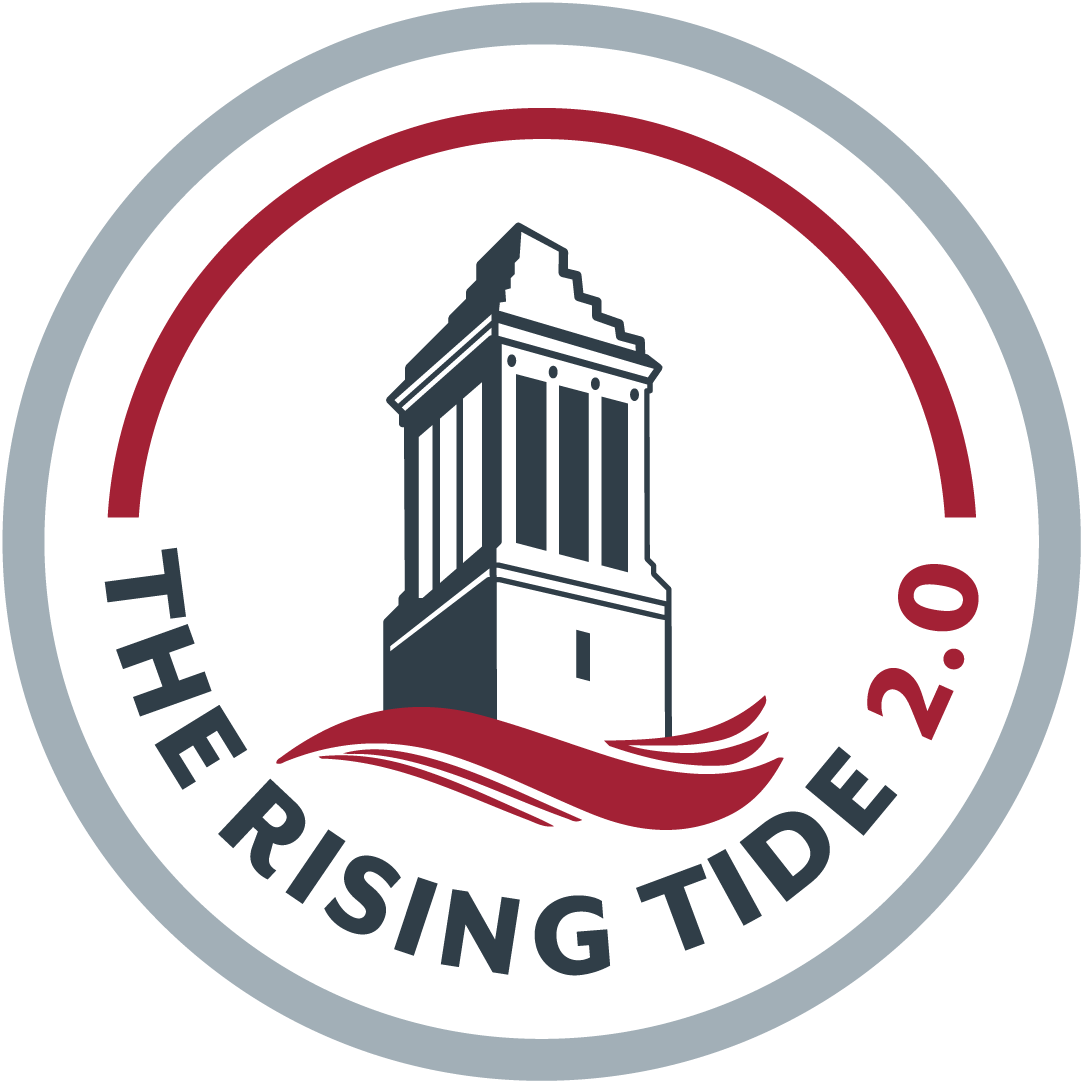
At the start of her senior year, University of Alabama alumna Lillian Brand had just wrapped up her responsibilities as Student Government Association (SGA) president and passed the torch to the next administration. Despite having just finished an intense yet rewarding role, she still wanted to participate in extracurricular activities and remain involved on campus. So, she was ecstatic when Dr. Ruperto Perez, the associate vice president for Student Health and Wellbeing, established the Advisory Council on Wellness that same year and asked her to be a member of the council’s inaugural class. She jumped at the opportunity to continue making a difference at UA.
While on campus, I was always passionate about finding ways to create and implement mental health initiatives and programming to best serve the students at the Capstone. On the Advisory Council on Wellness, I had the opportunity to really put that passion into action.
–Lillian
Lillian and the other council members met once a week with Dr. Perez to discuss their perspectives on current issues pertaining to the Alabama Model’s seven dimensions of student wellness. Along with engaging in serious conversation surrounding wellness issues, the Advisory Council on Wellness conducted polling and focus groups among UA students to dive deeper into specific initiatives the students would like to see implemented on campus. They also researched what other college campuses across the U.S. are doing to uplift the well-being of their student populations. This in turn provided them with invaluable professional experience that they carry with them throughout their careers.
After performing professional-level research and analysis, the council takes their ideas and turns them into tangible, actionable items to present to campus administration.
By putting together focus groups and doing quantitative polling, we identified that the lack of knowledge about the Counseling Center was a really serious concern on campus. We made the recommendation [to UA administration] to add the Counseling Center’s contact information and address to every syllabus and ACT card, and that was one of the first things implemented by campus administrators
–Lillian
In addition to conducting research, the council authors a white paper each year about their findings, opinions and perspectives on the current wellness landscape for students at the Capstone. The Advisory Council on Wellness has currently published four white papers that each explore a different focus of student wellness, such as mental health, long-term social effects of the Covid-19 pandemic, sexual health and well-being and addiction. They also give presentations on their discoveries at professional conferences and have given seven presentations across four cities in the last three years. In 2023, the Advisory Council on Wellness placed second in the Human Environmental Sciences category at The University of Alabama’s Undergraduate Research and Creative Activity Conference!

Lillian’s work in the Advisory Council on Wellness ensured that future generations of UA students will receive enhanced resources that bolster every aspect of student wellness on campus. It also provided worthwhile workplace skills and continues to strengthen her professional development.
I’m really grateful for the opportunity to learn from my friends on the council and the UA administrators. It’s continued to be a notch in my belt in terms of practical, professional experience that employers look at and respect
–Lillian
You can partner with the Advisory Council on Wellness to continue supporting students at UA as they navigate college life through the dimensions of student wellness. Visit give.ua.edu/student-wellness to provide a gift of any size to the advisory council and ensure that students who are passionate about wellness initiatives on the Capstone’s campus have resources to support their work.


